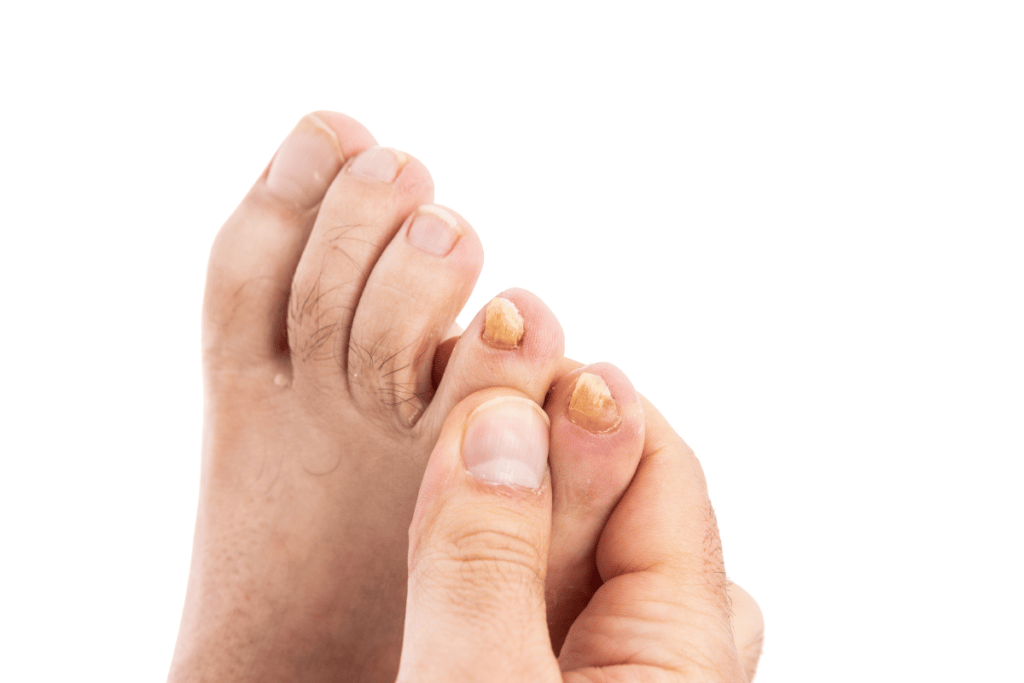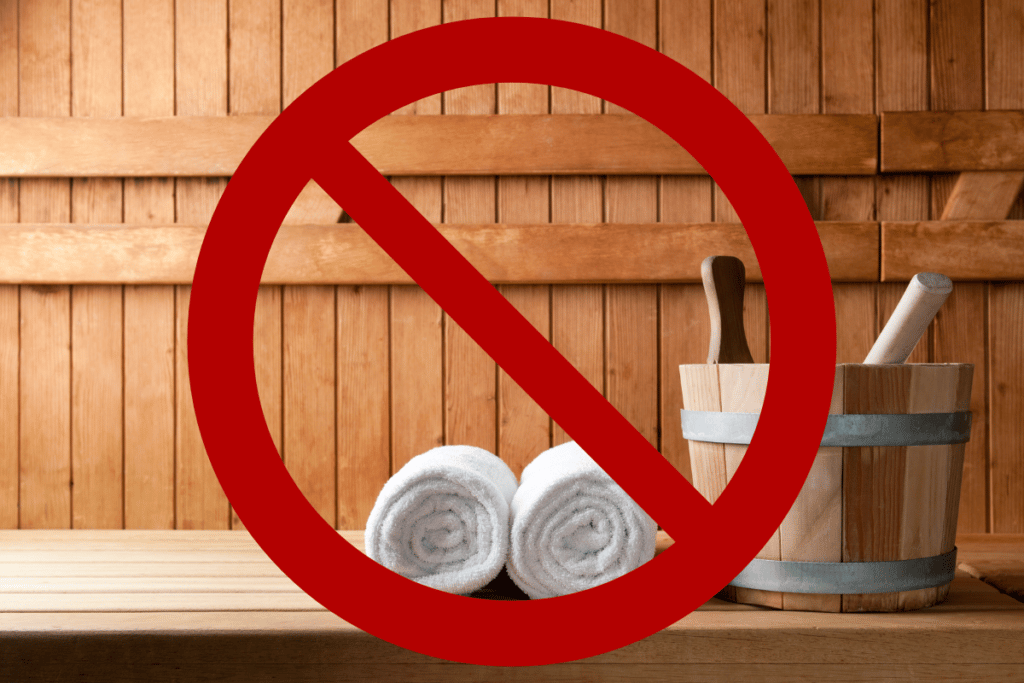No one likes the idea of a fungal infection. Unfortunately, shared spaces like saunas are a common way to get them. But, can saunas help with fungal infections?
Saunas can contribute to the spread of fungal infections. Fungal infections often spread through direct or indirect contact and thrive in warm, damp conditions. You should avoid saunas if you have a fungal infection. On the plus side, saunas boost your immune system, and enhanced immunity can help prevent fungal infections in the first place!
Keep reading for more in-depth information about the relationship between saunas and fungal infections.
Most common types of fungal infections
What are we referring to when we’re talking about fungal infections?
According to the CDC, the most common types of fungal infections include fungal nail infections, vaginal candidiasis, ringworm, and Candida in the mouth, throat, and/or esophagus.
Some of the most common types of fungal infections include:
- Fungal nail infections – Fungal nail infections affect about 15% of the population and are more common in the toes than in the fingers.
- Vaginal candidiasis – Caused by the yeast Candida. Also known as vaginal yeast infections.
- Ringworm – Causes a red, itchy, circular rash. The fungi can live on bedding, towels, clothing, surfaces, and skin. Ringworm on feet is known as “athlete’s foot.”
- Candida in mouth, throat, and/or esophagus – While the fungus Candida usually lives outside and inside your body with no problem, it can sometimes multiply and create an infection.
Can you get a fungal infection from the sauna?
The truth is that saunas are a pretty easy way to get a fungal infection.
You can get a fungal infection from the sauna because fungus thrives in warm, wet environments. Most fungal infections can also be spread either by direct or indirect contact. The good news is that saunas can boost your immunity, potentially offsetting your risk of contracting infections to begin with.

Fungal nail infections can develop in warm, damp environments. While you can get them from fungi that are already in/on your body, this infection can also spread from person to person.
That being said, poor circulation is another cause of fungal nail infections – and saunas can improve your circulation.
Meanwhile, if you don’t change out of your sweaty clothes, this can increase your chances of developing a vaginal yeast infection. And we all know that saunas make you sweaty!
This shouldn’t be an issue so long as you change out of your clothes after the sauna, or out of your gym clothes before entering the sauna – which are both proper sauna etiquette anyway.
Weak immune systems can also cause vaginal yeast infections. Luckily, the sauna can help boost immunity.
Ringworm is most common in warm climates, and you’re most likely to pick it up if you come in close contact with someone who has it, wear tight clothing, or have a weakened immune system.
Thankfully, none of the risk factors for Candida in the mouth, throat, or esophagus have anything to do with saunas. And again, well-functioning immune systems can help prevent it!
For the most part, saunas may help you avoid being susceptible to developing a fungal infection, but you should avoid going in a sauna until your existing infection has been treated.
Can you use a sauna with a fungal infection?
So if you’re infected, can you still use a sauna?
You should not use a sauna with a fungal infection. You can spread the fungal infection to someone else through direct contact. You can also spread it by touching surfaces that other people will touch after you.
You can not use a sauna with a fungal infection.
Most fungal infections spread on contact and can even stay on surfaces. This means that even if you don’t touch anyone in the sauna, you can spread the fungal infection just by sitting down and touching things!
Does heat from a sauna make fungal infections worse?
How does heat relate to fungal infections?
The heat from a sauna can worsen fungal infections because it encourages them to develop and spread.
Heat can be a contributing factor to causing fungal infections. It can also make fungal infections worse by encouraging the further spread of the infection in your body.
Should you avoid saunas if you have a fungal infection?
What’s the right thing to do?
You should definitely avoid saunas if you have a fungal infection out of courtesy for others and yourself. Heat can make your fungal infection spread to more parts of your body. You can also spread the infection to other people through both direct and indirect contact.

You should avoid saunas if you have a fungal infection.
Heat can worsen your fungal infection, and using the sauna can increase the chances of spreading the infection to others.
Common remedies for fungal infections?
Let’s say you already have a fungal infection. What now?
Some common remedies for fungal infections include Micatin, antifungal essential oils, antifungal creams, suppositories, and medicated lozenges. The remedy you choose will depend on your infection and how you want to treat it.
Common remedies for fungal infections include:
- Micatin – A topical cream used to treat fungal infections.
- Antifungal essential oils – When mixed with a carrier oil, some antifungal oils can be applied to the infection to treat fungus. The essential oil used will vary by the type of infection being treated.
- Antifungal creams – Many types of antifungal creams are available, both by prescription and over-the-counter. The type that’s best for you will be based on the infection type, its locations, and how it has responded to previous treatments.
- Suppositories – Antifungal suppositories may be used to treat vaginal yeast infections.
- Medicated lozenges – Used to treat thrush (a candida infection in the mouth and throat area), medicated lozenges dissolve slowly in the mouth and deliver the antifungal medication that way.


